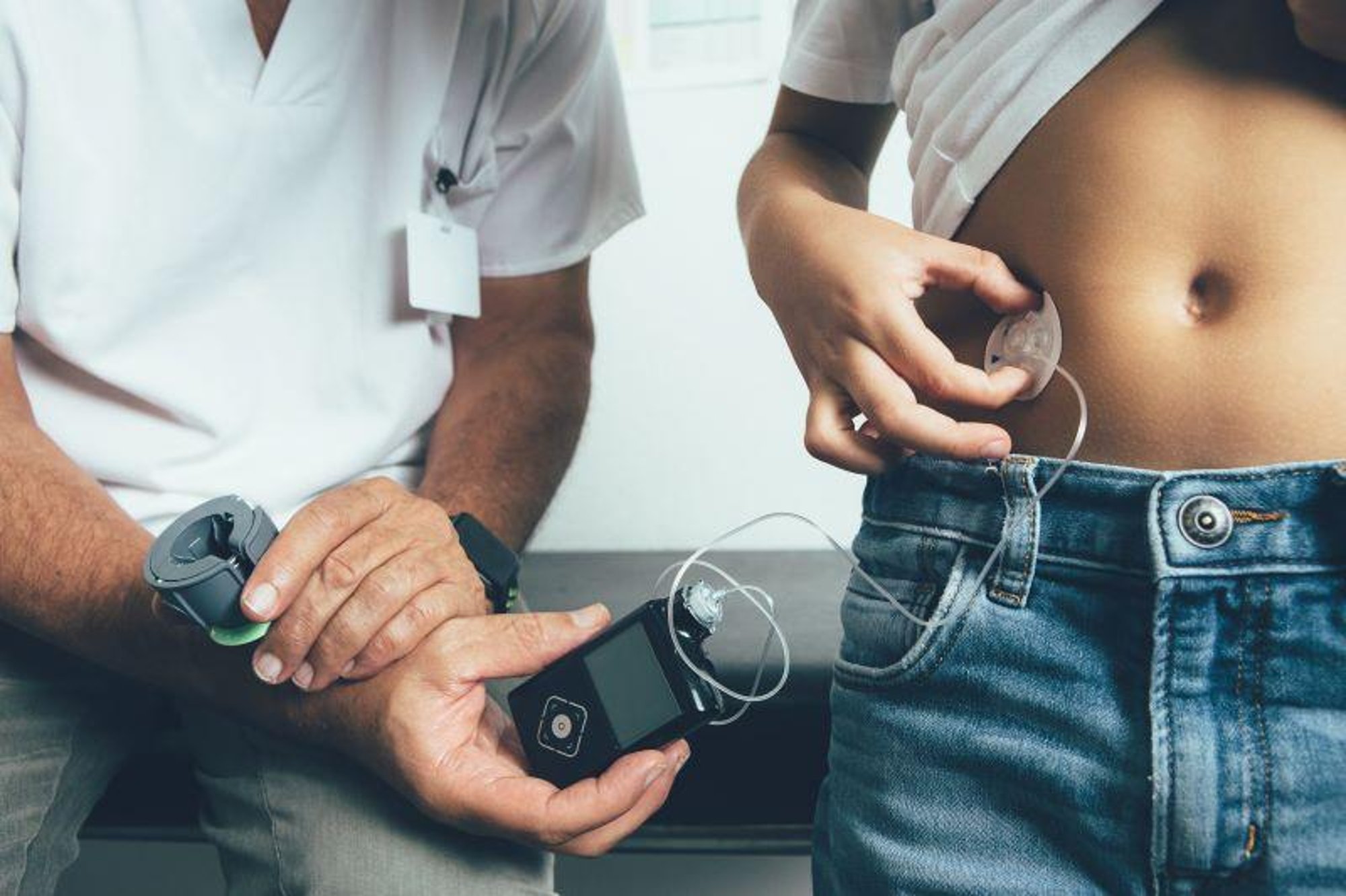Closed-Loop Glucose System Beneficial for Young Children With Type 1 Diabetes

FRIDAY, March 17, 2023 (HealthDay News) -- For young children with type 1 diabetes, a closed-loop glucose system results in a higher percentage of time that the glucose level is in the target range, according to a study published in the March 16 issue of the New England Journal of Medicine.
R. Paul Wadwa, M.D., from the University of Colorado in Aurora, and colleagues randomly assigned 102 children who were at least 2 years of age but younger than 6 years with type 1 diabetes to receive treatment with a closed-loop system of insulin delivery or standard care, including either an insulin pump or multiple daily injections of insulin plus a continuous glucose monitor, in a 13-week multicenter trial (68 and 34 patients, respectively). In 81 percent of the patients, initiation of the closed-loop system was virtual.
The researchers found that from baseline to during the 13-week follow-up period, the mean percentage of time that the glucose level was within the target range increased from 56.7 to 69.3 percent in the closed-loop group and from 54.9 to 55.9 percent in the standard-care group (mean adjusted difference, 12.4 percentage points; equivalent to about three hours per day). Similar treatment effects were seen for the percentage of time that the glucose level was >250 mg/dL, on the mean glucose level, and on the glycated hemoglobin level; no significant difference was seen between the groups in the percentage of time that the glucose level was <70 mg/dL.
"These results suggest that in very young children, closed-loop systems are superior to standard care with respect to glucose control," writes the author of an accompanying editorial.
Abstract/Full Text (subscription or payment may be required)
Editorial (subscription or payment may be required)
Related Posts
AHA News: During a Stroke, Her Doctor Son Got Her Quick Care, Then Her Granddaughter Penned a Story
MONDAY, Aug. 7, 2023 (American Heart Association News) -- Rekha Desai planned to...
¿Su resolución es perder peso? Los expertos evalúan el ayuno, la keto y Whole 30
JUEVES, 30 de diciembre de 2021 (HealthDay News) -- Las personas que están...
Los niños vuelven a la escuela, y una encuesta halla que un 71 por ciento tuvieron problemas el año pasado
VIERNES, 28 de julio de 2023 (HealthDay News) -- Mientras los niños se preparan...
New COVID Cases Were 300% Higher This Labor Day Weekend Than Last Year
TUESDAY, Sept. 7, 2021 (HealthDay News) -- With the Delta variant surging and...
